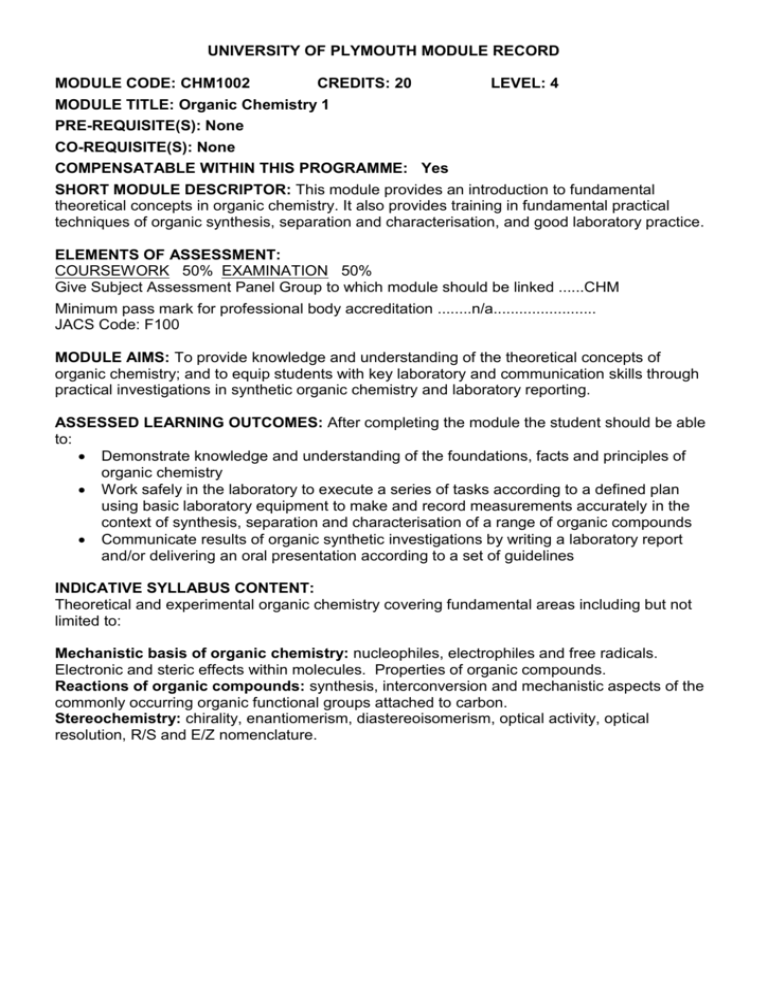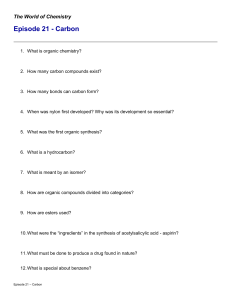UNIVERSITY OF PLYMOUTH MODULE RECORD MODULE CODE
advertisement

UNIVERSITY OF PLYMOUTH MODULE RECORD MODULE CODE: CHM1002 CREDITS: 20 LEVEL: 4 MODULE TITLE: Organic Chemistry 1 PRE-REQUISITE(S): None CO-REQUISITE(S): None COMPENSATABLE WITHIN THIS PROGRAMME: Yes SHORT MODULE DESCRIPTOR: This module provides an introduction to fundamental theoretical concepts in organic chemistry. It also provides training in fundamental practical techniques of organic synthesis, separation and characterisation, and good laboratory practice. ELEMENTS OF ASSESSMENT: COURSEWORK 50% EXAMINATION 50% Give Subject Assessment Panel Group to which module should be linked ......CHM Minimum pass mark for professional body accreditation ........n/a........................ JACS Code: F100 MODULE AIMS: To provide knowledge and understanding of the theoretical concepts of organic chemistry; and to equip students with key laboratory and communication skills through practical investigations in synthetic organic chemistry and laboratory reporting. ASSESSED LEARNING OUTCOMES: After completing the module the student should be able to: Demonstrate knowledge and understanding of the foundations, facts and principles of organic chemistry Work safely in the laboratory to execute a series of tasks according to a defined plan using basic laboratory equipment to make and record measurements accurately in the context of synthesis, separation and characterisation of a range of organic compounds Communicate results of organic synthetic investigations by writing a laboratory report and/or delivering an oral presentation according to a set of guidelines INDICATIVE SYLLABUS CONTENT: Theoretical and experimental organic chemistry covering fundamental areas including but not limited to: Mechanistic basis of organic chemistry: nucleophiles, electrophiles and free radicals. Electronic and steric effects within molecules. Properties of organic compounds. Reactions of organic compounds: synthesis, interconversion and mechanistic aspects of the commonly occurring organic functional groups attached to carbon. Stereochemistry: chirality, enantiomerism, diastereoisomerism, optical activity, optical resolution, R/S and E/Z nomenclature.




